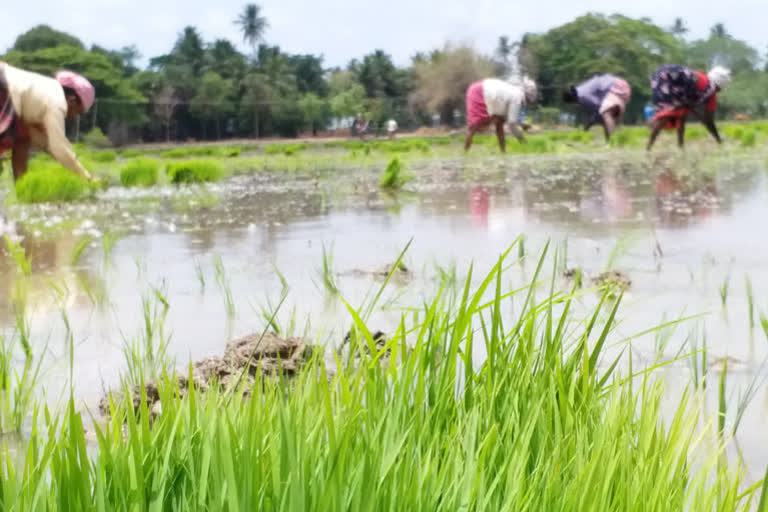New Delhi: The Union government has proposed to ban 27 pesticides as it issued a draft order on Monday. These pesticides continue to be used for mitigation or control of pests and diseases of a wide range of crops in India and in several other countries.
The government has shortlisted these 27 pesticides from the 66 contentious pesticides being reviewed.
Speaking to ETV Bharat, Bharatiya Krishak Samaj president Krishna Vir Chaudhary said that around 80 per cent of the pesticides produced in India, worth Rs 18,000 crore are exported to nations like the US, Japan, and Brazil. While on one hand, the Prime Minister encourages more exports, the policy makers seem to not want that to happen.
"Usually, farmers in India utilise Mancozeb in the cultivation of crops like grapes and potatoes, while other nations also use it to protect crops. However, by putting a ban on such products, we are hurting ourselves," he said.
"Yet another product is acephate, which is cheap and is being used by farmers for the past 30 years. The product, which costs Rs 500 per kilo is used in the production of Paddy and cotton. While 300 grams of this product is enough for one acre of crop, its alternative costs four to five times more," he added.
At a time when coronavirus is wreaking havoc world over, the government through the Pesticide Management Bill wants to import a new virus, Chaudhary said.
Read: Rajnath exhorts MSMEs to make India 'Atma Nirbhar' in defence tech, products
Chaudhary appealed to Prime Minister Modi to take action against the authorities working against his thought of encouraging exports.
Meanwhile, agriculture expert Vijay Sardana told ETV Bharat that pesticides play an extremely important role in agriculture, provided they are used in limited quantity. He said that the industry must communicate to the government its issues and suggestions if any.
Under the pressure of big corporations, western countries had abandoned hydroxychloroquine, but the medicine, being manufactured in our country, came to the rescue during this coronavirus pandemic. Even a developed nation like the US had to ask for our help, Sardana wrote in his blog.
Similarly, chlorpyrifos came to the rescue when locusts wreaked havoc on crops. However, this pesticide has now been listed among the banned products, Sardana said, adding that the government needed to carefully analyse and take decisions.
According to the May 14 notification, companies were given a 45-day-period for putting forward their issues and suggestions. According to sources, all the pesticide companies might even come together to approach the courts.
Read: Once lockdown is withdrawn, containment zones need to be under guard: AHPI



